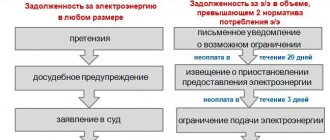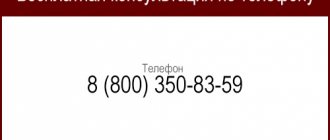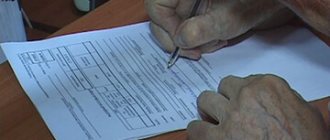Legislation
- The Civil Code of the Russian Federation regulates relations in the field of rights and contractual obligations, including on the part of public utilities.
- The Housing Code of the Russian Federation establishes quality criteria for the provision of housing and communal services.
- Decree of the Government of the Russian Federation dated May 6, 2011 No. 354 “On the provision of utility services to owners and users of residential premises in apartment buildings” contains criteria for the quality of water supply, payment procedures, and recalculation practices. Paragraph 122 prescribes what utilities must take into account when stopping the supply of hot water. Chapter 11 contains a mechanism for limiting and disabling a resource.
- SanPiN 2.1.4.2496-09 “Hygienic requirements for ensuring the safety of hot water supply systems” establishes the regulatory characteristics of water supply to an apartment building.
Do they have the right to turn off cold water in a private house for non-payment?
Decree of the Government of the Russian Federation dated May 6, 2011 N 354 (as amended on February 27, 2017) “On the provision of utility services to owners and users of premises in apartment buildings and residential buildings” (together with the “Rules for the provision of utility services...
XXI. Suspension or restriction of provisionutilities
114. When limiting the provision of a utility service, the contractor temporarily reduces the volume (quantity) of supply to the consumer of a utility resource of the corresponding type and (or) introduces a schedule for the provision of utility services during the day.
When the provision of a utility service is suspended, the contractor temporarily stops supplying the consumer with a utility resource of the corresponding type.
In the event that the suspension of the provision of a utility service is caused by the consumer having a debt to pay for a utility service, the contractor is obliged to seal mechanical, electrical, sanitary and other equipment located in an apartment building outside or inside the premises used by the debtor consumer and associated with providing him with public services.
Suspension or restriction of the provision of utility services does not constitute termination of the agreement containing provisions for the provision of utility services.
If the suspension or restriction of the provision of a communal resource in relation to non-residential premises in an apartment building is caused by the presence of debt under an agreement with a resource supplying organization or the absence of a written agreement with a resource supplying organization, provided for in paragraph 6 of these Rules, for a consumer whose resource-consuming equipment is connected to intra-house utility networks, the above actions to limit or suspend the provision of a communal resource are carried out by the person responsible for the maintenance of in-house utility networks, at the request of the resource supplying organization. If the resource-consuming equipment of such a consumer-debtor in a non-residential premises is connected to centralized networks of engineering and technical support before entering an apartment building, the introduction of consumption restrictions in such non-residential premises is carried out by the resource supplying organization in accordance with the legislation of the Russian Federation on water supply, sanitation, energy supply, heat supply and gas supply .
(paragraph introduced by Decree of the Government of the Russian Federation dated December 26, 2016 N 1498)
115. The Contractor limits or suspends the provision of utility services without prior notice to the consumer in the event of:
a) the occurrence or threat of an emergency in centralized networks of engineering and technical support through which water, heat, electricity and gas supply, as well as sewerage are carried out - from the moment of the occurrence or threat of such an emergency;
b) the occurrence of natural disasters and (or) emergency situations, as well as, if necessary, their localization and elimination of consequences - from the moment such situations arise, as well as from the moment such a need arises;
c) detection of the fact of unauthorized connection of the consumer’s intra-apartment equipment to in-house engineering systems or centralized networks of engineering and technical support - from the moment the unauthorized connection is identified;
d) use by the consumer of household machines (devices, equipment), the connection power of which exceeds the maximum permissible loads, calculated by the contractor based on the technical characteristics of in-house engineering systems and brought to the attention of consumers - from the moment the violation is detected;
e) the contractor receives an order from the body authorized to exercise state control and supervision over the compliance of in-house engineering systems and in-apartment equipment with established requirements, on the need to introduce a restriction or suspension of the provision of utility services, including an order from the executive body of the constituent entity of the Russian Federation authorized to exercise state control for compliance of the quality, volume and procedure for the provision of utility services with established requirements, about the unsatisfactory condition of in-house engineering systems (for the technical condition of which the owner of a residential building is responsible) or in-house equipment that threatens an accident or poses a threat to the life and safety of citizens - from the day specified in the document the relevant authority.
116. In the cases specified in subparagraphs “a” and “b” of paragraph 115 of these Rules, the contractor is obliged, in accordance with paragraph 104 of these Rules, to register in the logbook the date, start (end) time and reasons for the restriction or suspension of the provision of utility services, and also, within 24 hours from the date of restriction or suspension of the provision of utility services, inform consumers about the reasons and expected duration of the restriction or suspension of the provision of utility services.
117. The contractor restricts or suspends the provision of utility services, having previously notified the consumer, in the event of:
a) incomplete payment by the consumer for utility services in the manner and within the time limits established by these Rules;
(clause “a” as amended by Decree of the Government of the Russian Federation dated December 26, 2016 N 1498)
(see text in the previous edition)
b) carrying out scheduled preventive repairs and maintenance work on centralized networks of engineering support and (or) in-house engineering systems related to the common property of the owners of premises in an apartment building - 10 working days after a written warning (notification) to the consumer.
118. Incomplete payment by a consumer for a utility service is understood to mean that the consumer has a debt to pay for 1 utility service in an amount exceeding the sum of 2 monthly fees for a utility service, calculated on the basis of the utility service consumption standard, regardless of the presence or absence of an individual or common (apartment) appliance accounting and tariff for the corresponding type of utility resource, valid on the day of restriction of the provision of utility services, provided that the debtor consumer does not have a debt repayment agreement concluded with the contractor and (or) if the debtor consumer fails to comply with the terms of such an agreement.
(as amended by Decree of the Government of the Russian Federation dated February 17, 2014 N 112)
(see text in the previous edition)
If the consumer does not fully pay for all types of utility services provided by the contractor to the consumer, then the contractor calculates the consumer's debt for each type of utility service separately.
If the consumer partially pays for the utilities and maintenance services provided by the contractor, the contractor divides the payment received from the consumer between all types of utilities indicated in the payment document and the fee for the maintenance and repair of the residential premises in proportion to the size of each fee specified in the payment document . In this case, the contractor calculates the consumer's debt for each type of utility service based on the partially unpaid amount.
(as amended by Decree of the Government of the Russian Federation dated December 26, 2016 N 1498)
(see text in the previous edition)
119. Unless otherwise established by federal laws, decrees of the President of the Russian Federation, decrees of the Government of the Russian Federation or an agreement containing provisions on the provision of utility services, the contractor, in the event of incomplete payment by the consumer of the utility service, has the right, after a written warning (notification) of the consumer-debtor, to limit or suspend the provision such utility service in the following order:
a) the contractor sends a warning (notification) to the consumer-debtor that in case of failure to repay the debt for payment of a utility service within 20 days from the date of delivery of the specified warning (notification) to the consumer, the provision of such utility service to him may first be limited and then suspended or if there is no technical possibility of introducing a restriction, it is suspended without first introducing a restriction. The warning (notice) is delivered to the consumer by delivering the consumer-debtor against a signature, or by sending it by registered mail (with acknowledgment of delivery), or by including the text of the corresponding warning (notification) in the payment document for payment of utility services, or in another way of notification , confirming the fact and date of its receipt by the consumer, including by transmitting a warning (notification) to the consumer via a message via a mobile radiotelephone network to the consumer's user equipment, a telephone call with a recording of the conversation, an email message or through the consumer's personal account in the state housing information system - public utilities or on the official page of the contractor on the information and telecommunications network “Internet”, transmission of voice information to the consumer via a fixed telephone network;
b) if the debtor consumer fails to repay the debt within the period established in the warning (notification), the contractor, if technically possible, introduces a restriction on the provision of the utility service specified in the warning (notification);
c) if the resulting debt is not repaid within the period established in the warning (notification) and in the absence of the technical possibility of introducing a restriction in accordance with subparagraph “b” of this paragraph, or if the resulting debt is not repaid after 10 days from the date of introduction of the restriction on the provision of utility services, the contractor shall suspend the provision such public services, with the exception of heating, and in apartment buildings also with the exception of cold water supply.
(clause 119 as amended by Decree of the Government of the Russian Federation dated December 26, 2016 N 1498)
(see text in the previous edition)
120. The provision of utility services is resumed within 2 calendar days from the date of elimination of the reasons specified in subparagraphs “a”, “b” and “d” of paragraph 115 and paragraph 117 of these Rules, full repayment of the debt and payment of the contractor’s expenses for introducing restrictions, suspension and the resumption of the provision of utility services in the manner and amount established by the Government of the Russian Federation, or the conclusion of an agreement on the procedure for repaying the debt and paying the specified expenses, if the contractor has not decided to resume the provision of utility services from an earlier point.
(clause 120 as amended by Decree of the Government of the Russian Federation dated December 26, 2016 N 1498)
(see text in the previous edition)
121. Restriction or suspension by the contractor of the provision of utility services, which may lead to a violation of the rights to receive utility services of proper quality by a consumer who fully fulfills the obligations established by the legislation of the Russian Federation and the agreement containing provisions on the provision of utility services, is not allowed, except for the cases specified in subparagraphs “a”, “b” and “d” of paragraph 115 and paragraph “b” of paragraph 117 of these Rules.
121(1). The contractor's expenses associated with the introduction of restrictions, suspension and resumption of the provision of utility services to the debtor consumer are subject to reimbursement at the expense of the consumer in respect of whom these actions were carried out.
(clause 121 (1) introduced by Decree of the Government of the Russian Federation dated December 26, 2016 N 1498)
122. Actions to restrict or suspend the provision of public services should not lead to:
a) damage to the common property of the owners of premises in an apartment building;
b) violation of the rights and interests of consumers using other premises in this apartment building and fully fulfilling the obligations established by the legislation of the Russian Federation and the agreement containing provisions on the provision of utility services;
c) violation of the established requirements for the suitability of residential premises for permanent residence of citizens.
Is it legal to deprive water supply for debts?
The restriction of individual utilities for non-payment is regulated by Government Decree No. 354 and is legal.
Free HOTLINE:
Moscow time 8 (499) 938 6124
St. Petersburg 8 (812) 425 6761
Fed 8 (800) 350 8362
Disabling hot water, electricity, gas and intercom is possible in case of debt equal to two monthly payments.
Turning off other resources (sewage, cold water, heating) is illegal, as it creates inadequate living conditions in the apartment and can also damage the entire entrance.
IMPORTANT! Cutting off cold water supply is illegal.
The management company that turns off the debtor’s water should make sure that the following measures:
- will not damage common property;
- will not affect the provision of resources to bona fide payers;
- will not violate sanitary standards.
If these conditions are not met, turning off hot water is unacceptable.
When can hot water be turned off in an apartment?
The law defines several grounds:
- Accident or natural disaster. This is the main reason for shutdowns without warning.
- The need for scheduled repairs. If we are talking about switching off for several hours, then they must warn about this a day in advance. If about a longer period - in a few days.
- The consumer committed a crime and voluntarily connected to the water supply. For such an action, an order from an authority is required.
- It was revealed that apartment residents were using appliances whose power exceeded permissible limits. The border can be found out from the technical passport of the residential building.
- The commission established the fact of improper maintenance of pipes in residential premises. The law establishes the responsibility of owners for repairs and maintenance of communications inside the apartment. When the poor condition of the pipes threatens the supply of resources to the entire house, services turn off irresponsible owners.
- Unpaid payments.
IMPORTANT! The amount of debt for disconnection is equal to the amount of payment for two months. Moreover, it is calculated according to the consumption standard, regardless of whether DHW meters are installed or not.
Residents who, due to various life situations, could owe for the mountains. water, has the right to contact the management of the resource supplying organization to draw up a debt repayment schedule.
Utility services usually do not refuse installment plans, as this is beneficial to both parties. If the schedule is followed and the money is deposited monthly into the RSO account, no sanctions will follow.
Other reasons for shutdown
Vodokanal has the right to cut off the water supply in emergency situations that are in no way related to debt. During an accident on the central water supply, the water supply is stopped to eliminate the consequences. Another valid reason is the poor quality of water supplied to the apartment. For example, it may contain harmful chemical impurities and dangerous bacteria that can cause an epidemic among the population.
Planned water shutoffs are carried out in the summer; residents must be notified about this 10 days before the proposed action. An announcement about upcoming repair work should be posted in the entrance of an apartment building, indicating the date and duration of the water outage.
Stopping the water supply is permitted without prior notice if:
- there is a malfunction of water pipes, which threatens flooding of neighbors and can cause damage to common property;
- the owner illegally connected his own equipment to the riser of the house;
- The consumer, through his actions, caused a water supply failure.
Some subscribers install devices whose power exceeds the network load. This can disrupt the water supply of an apartment building, which will certainly entail fines for damage to property.
Is it legal to turn it off without a court order?
The procedure for turning off water to dishonest or unscrupulous consumers of utility services without a court decision is absolutely legal. But only on strictly defined grounds listed in Government Decree No. 354 (clause 119, paragraphs a, b, c): if there is a debt in the amount of two monthly payments according to the standard and its non-payment, improper maintenance of hot water communications in the apartment, illegal connection.
Turning off cold water is unacceptable under any circumstances. This is explained by the fact that the constitutional rights of the citizen will be violated, and the sanitary well-being of the entrance or home will also be endangered.
Mitigating Factors
You can always reach an agreement with the utility service if the consumer has objective reasons for delaying payments and does not refuse to repay the debt. Mitigating circumstances will be considered:
- All able-bodied citizens registered in housing earn amounts less than the subsistence level. Then they can qualify for low-income status and take advantage of subsidies from the state. It will take on part of the rent that exceeds the maximum established by law.
IMPORTANT! The law does not have retroactive effect, that is, the subsidy will be valid from the moment of registration, but there will be no recalculation for previous accruals. The debt will have to be paid in full.
- Delay of wages at the debtor's workplace. To do this, you must submit the appropriate certificate to the RSO. Then he will be given a deferred payment and the water will not be turned off.
- Accommodation in an apartment for a minor child or a disabled person. The law prohibits shutting off the water in this case.
- Temporary difficulties with the employment of citizens, provided that they take measures to solve the problems.
- Difficult financial situation for objective reasons.
If you want to avoid punitive measures, you must pay for the service provided in part, at least once every three months.
An individual approach to the consumer in the form of deferment, installment payments, cancellation of the decision to disconnect the hot water supply is possible only on an application basis. That is, citizens must initiate communication with the management of the RSO or management company and prove the temporary nature of material difficulties, demonstrate attempts to eliminate them and a willingness to bear obligations.
Disconnection procedure in an apartment building
If payments for hot water are not received by the utility service, non-payment has accumulated in the amount of two months' payment according to the standard, and the consumer does not try to peacefully resolve the conflict, a decision may be made to turn off the hot water supply.
The management company is obliged to warn the owner about this twenty days before execution. Thus, he is given time to pay off the debt or draw up a debt payment schedule. Moreover, the debtor must be notified properly, that is, the management company must have a copy of the notification with his signature on delivery.
Shutting down without notice is prohibited except in emergency situations.
After 20 days, a hot water supply limitation mode is introduced. If the situation with the unpaid debt has not changed within 10 days, the provision of hot water supply services is terminated.
On the appointed day, a representative of the management company will come to the apartment and weld the pipe. This is possible if the owner voluntarily opens the door and lets him in. Often cunning debtors do not open the door. Then the option of blocking the riser in the basement is possible. In this way, some damage will be caused to the common property of the house, which will be recovered from the debtor through the court, among other fines and penalties.
Procedure for turning off water for non-payment
The rights to disconnect utility resources, which include water supply, are vested in the directors of management companies (MCs), homeowners' associations, and housing cooperatives.
The rules for the provision of public utilities approved by the Government clearly state the procedure in accordance with which water can be turned off.
Firstly, the payment arrears must be at least 2 months and between

There is no agreement between the consumer and the management services on the gradual repayment of debt. This debt is determined according to water consumption standards, regardless of whether the resident has an individual meter.
If there is a debt, the relevant services send a warning to the debtor against receipt or by registered mail that if the debt is not repaid within 20 days, his water supply will be limited and then suspended. If there are no technical capabilities to limit water, it will be turned off without prior limitation.
If after 20 days the debt is not repaid, then the water supply is limited, and if after 30 days the debt remains, then the water is turned off completely, giving the debtor a warning about this against a receipt 3 days in advance.
Actions in case of legal shutdown
If the disconnection is legal, then the defaulter can perform the following actions:
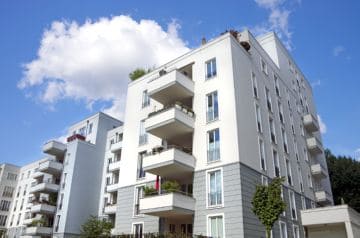
- Pay the debt. If the debt is legal and all the rules for turning off the water have been followed, then the debt must be paid. When paying for it, the water must be turned on after 2 days. In this case, the debtor will have to pay for the connection.
- Conclude an agreement on a debt repayment schedule. If there is such an agreement and the tenant fulfills it, then the water will be turned on. In addition, if such an agreement is concluded before the shutdown occurs, then the water will not be turned off.
Actions in case of illegal water shutoff
For non-payment of utility debt, the management company does not have the right to turn off cold water in apartment buildings. In this case, she must collect the debt through the court.
In case of violation of the legal procedure for turning off water, the following actions must be taken:
- contact the Criminal Code with a demand to restore the water supply;
- if after 3 days the water supply is not restored, then send the appropriate
- application to the prosecutor's office;
- go to court with a request to oblige the management company to turn on the water.
How to get a mortgage from Sberbank for an apartment? Don't have time to search for an apartment to rent? Find out from our article how to rent housing through an agency.
When conducting any real estate transactions involving minors, you need to know certain nuances. They are described in detail here.
What to do if you were illegally disconnected
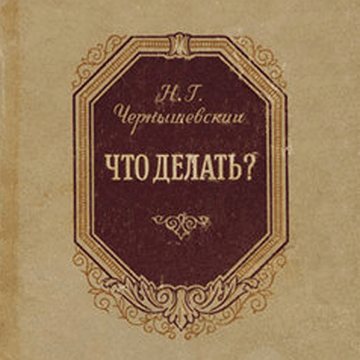
If there are no legal grounds for turning off the hot water supply, the consumer has a small debt for the month, but the water has been turned off, a number of actions must be taken to restore the supply and punish officials who exceeded their authority.
Where to complain
First, you need to try to resolve the conflict peacefully and write a complaint to the management of the management company demanding that the water supply be restored and recalculated for the period of its absence. If water is not provided, a response must be sent within 30 days and justify the disconnection. In this case, it is necessary to involve government agencies:
- The State Housing Inspectorate is a government body that monitors the work and legality of the actions of public utility services.
- Rospotrebnadzor, which supervises the fulfillment of contractual obligations by commercial organizations, including management companies, and compliance with consumer rights;
- The prosecutor's office is a government agency that initiates an audit of the activities of the Criminal Code and the actions (inactions) of government officials. It makes sense to go there only after completing the previous stages.
- Court. If other authorities have failed to solve the problem, the only option is to file a claim and go to court.
What to write
Complaints to the Criminal Code and authorities are drawn up according to the same model:
- The header indicates the full name of the manager, the name of the addressee, the details of the initiator of the complaint, and his address.
- In the main part, you need to tell in detail at what point there is no hot water, what you did to resolve the conflict and what you are trying to achieve.
- At the end there is a date of compilation and a signature.
If the hot water is turned off and you continue to receive receipts for services not provided, you need to contact the prosecutor's office.
The complaint is accompanied by a copy of the certificate of ownership of the apartment, a certificate of absence of debt for the resource, and previous correspondence.
A more effective way is to write a complaint to several authorities at once. Such a document is drawn up by writing in the upper right corner of several addressees at once: Housing Inspectorate, Rospotrebnadzor. Then each of the structures will see the active position of the applicant and will not leave the complaint unanswered.
Actions of the debtor in case of illegal disconnection
If a citizen believes that the water supply was turned off by suppliers illegally, he must act as follows:
- Send a written application to the management company with a request to restore the water supply and recalculate for the period of shutdown.
- If water does not appear in the apartment within three days, a claim is filed to be sent to Rospotrebnadzor and the Prosecutor's Office. A copy of the statement sent to the management company is attached to the claim.
The owner of the premises may also file a claim in court.
The claim is accompanied by photos and videos confirming the lack of utilities in the apartment, as well as witness statements.
Effective evidence is an inspection report drawn up in the presence of two witnesses.
You can find out more about where to complain about illegal shutdown of hot water and heating here.
